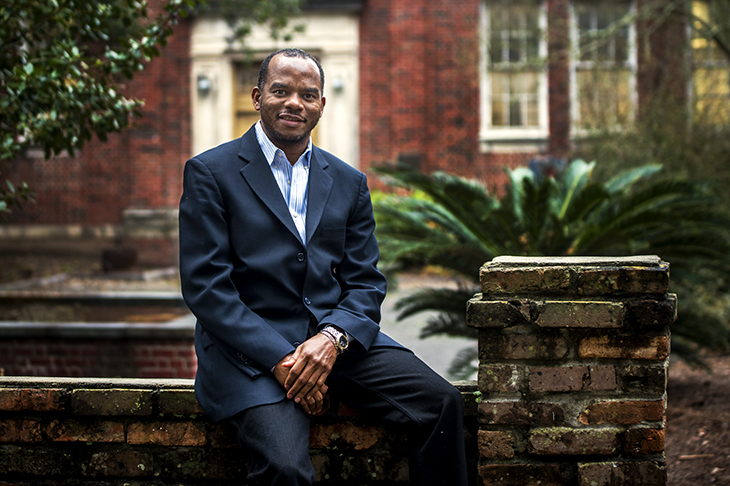Finding Haiti at Tulane

Marky Jean-Pierre says he teaches students not just Haitian Creole but also the evolution of the language through decades of struggle and perseverance. (Photo by Ryan Rivet)
Living in New Orleans gives Marky Jean-Pierre a sense of home. He"s lived in the city for a mere five months, but the vibe on the street, the people that stop and wave it wraps him in a sense of comfort.
Jean-Pierre, a professor of practice at Tulane University who is teaching Haitian Creole and French, grew up in Haiti. He said that New Orleans is a natural place to teach the language of his native country.
“One thing I tell my students is that what you are learning is not just a language.”—Marky Jean-Pierre, professor of practice
“I can feel the Creole expression in the way people in New Orleans live their life,” he said. “I can feel the Creole vibe.”
Jean-Pierre is among the fortunate few in Haiti to finish high school and have access to higher education. He later earned a bachelor"s degree in psychology from the State University of Haiti.
“I realized that this was not enough for me,” Jean-Pierre said. “I wanted something bigger than that.”
He took a deep breath and became the first member of his family to leave his country for the United States, arriving in Miami a day he will never forget on Oct. 12, 1998.
Jean-Pierre went on to earn two master"s degrees and a doctoral degree from the University of Massachusetts and a PhD in French and Francophone Studies from the University of Connecticut. He was named last year as one of the inaugural members of the Haitian Creole Academy, a board of prominent academics put in place by the Haitian government to promote the language.
Now Jean-Pierre, who frequently travels home to Haiti for philanthropic work, is focused on teaching the language he loves and also the Haitian Creole culture to Tulane students. Linguists once predicted the language would die out, he said, but noted proudly that it is widely spoken, in places such as Boston, New York and Florida.
“One thing I tell my students is that what you are learning is not just a language,” he said. “You are learning a language but you are also learning how a group of human beings has been able to create a language ⦠based on their social, historical evolution.”
